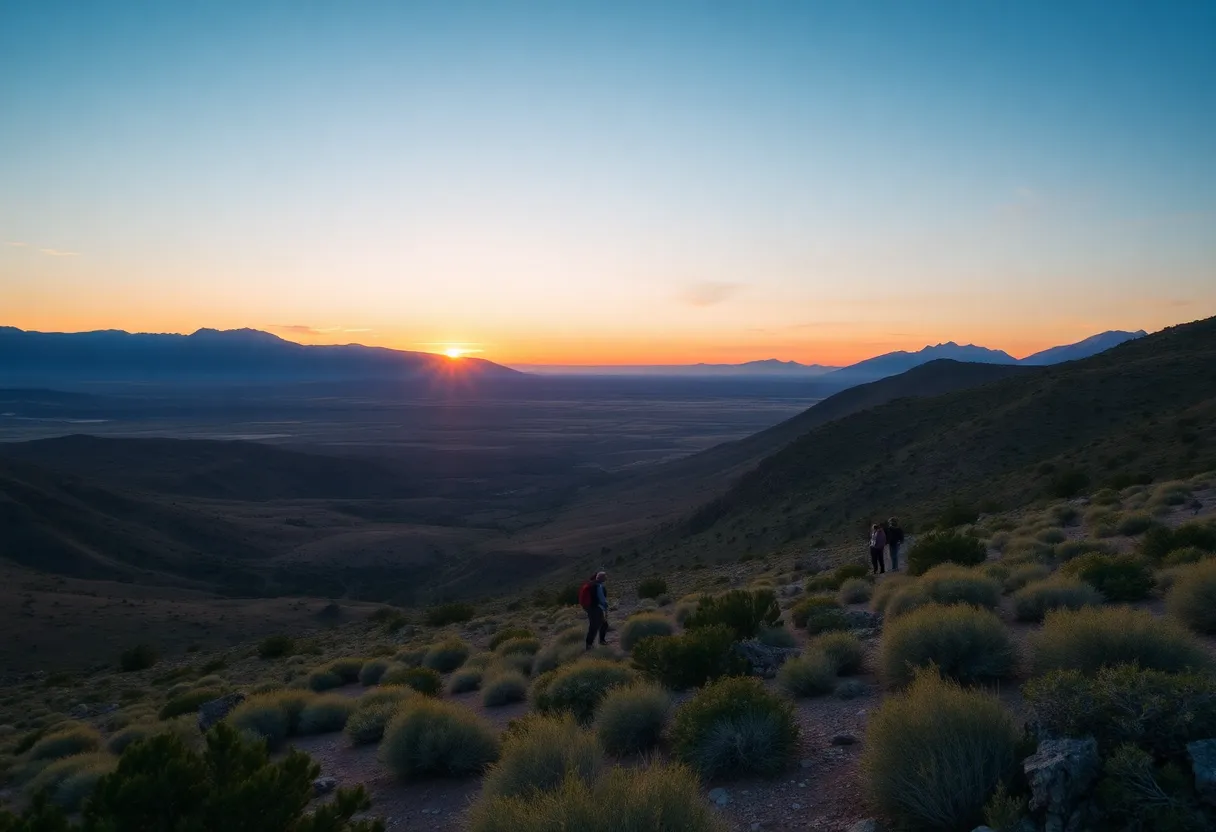News Summary
Nevada’s national parks are experiencing an economic crisis due to federal employment cuts that threaten park operations and the local economy. This situation endangers jobs and visitor safety, creating significant concerns about the sustainability of crucial outdoor recreation revenues. With reductions in park staffing, maintenance delays, and heightened safety risks, advocates stress the importance of investing in parks to support both environmental conservation and economic vitality in the region.
Las Vegas, Nevada – Economic Crisis Threatens State’s National Parks
Nevada’s national parks, including Great Basin National Park and Lake Mead National Recreation Area, are facing an economic crisis due to significant cuts in federal employment. These parks are crucial to the state’s outdoor recreation economy, contributing $8.1 billion in value-added GDP annually. With Nevada ranking 10th in the nation for outdoor recreation-related economic contributions, the loss of staff threatens not only the parks’ operations but also the livelihoods of those who depend on the tourism they attract.
In 2023, approximately 4.6 million visitors to National Park Service lands in Nevada spent over $239 million in local communities. This surge in tourism has supported more than 2,490 jobs and generated over $300 million in economic output. Many of these visitors also explore nearby attractions, such as Zion National Park, Joshua Tree, and the Grand Canyon, which in turn bolsters the economies of surrounding towns like Beatty and Mesquite.
However, the National Park Service has experienced a 24% reduction in its permanent workforce since the onset of the Trump administration. As a consequence, operating hours have been shortened, maintenance has been delayed, and visitor centers have even closed. For Great Basin National Park, the nearby town of Baker is heavily reliant on park tourism to sustain its economic viability; in 2023 alone, the park generated $15.4 million in visitor spending. Unfortunately, staffing cuts have reached a critical level, with Great Basin losing 20% of its staff, resulting from the termination of five recently hired park rangers.
The impact of staffing and budget cuts poses a substantial risk to Nevada’s economy, which increasingly leans on outdoor recreation, accounting for 3.3% of the state’s GDP. Lake Mead National Recreation Area, for instance, has lost at least 13 National Park Service employees. This downsizing has raised concerns regarding visitor safety, public health, and access to recreational activities. Increasing worries are surfacing over safety risks at Lake Mead, primarily due to fewer rangers on patrol and a rise in trash accumulation alongside delayed infrastructure repairs.
The actions taken during the Trump administration have heightened concerns about transparency and the broader impacts on community safety and economic stability within Nevada. The ramifications extend beyond park operations; the tourism sector relies heavily on supportive jobs including those of tour guides, hotel staff, and various service roles, all of which depend on continuous tourism from national parks.
Local advocates emphasize the necessity of investing in national parks, asserting that not only is this crucial for environmental preservation, but it is also vital for sustaining local economies and maintaining Nevada’s status as a leading destination for outdoor adventures.
In response to these challenges, community groups such as the Great Basin National Park Foundation are working to mitigate the impacts by temporarily hiring back some of the recently terminated staff. These efforts highlight a commitment to preserving both the natural landscapes of Nevada’s parks and the economic well-being of the communities that rely on them.
As Nevada’s parks struggle with staffing cuts and budget constraints, the state faces an uncertain future regarding its outdoor recreation economy and the broader economic implications for local communities.
Deeper Dive: News & Info About This Topic
HERE Resources
Ovation Development Launches Affordable Housing for Seniors in Las Vegas
Las Vegas Faces Tourism Decline Amid Business Developments
Rising Housing Distress in Las Vegas Amid Economic Challenges
Inauguration of West Sahara Senior Housing in Las Vegas
Las Vegas Hosts National Dog Day Celebrations
Las Vegas Braces for Scorching Temperatures
Las Vegas Set for Coolest July in a Decade
Nevada National Guard’s 17th Sustainment Brigade Returns Home
Decline in Las Vegas Tourism Raises Concerns
Las Vegas Named Best City for Recreation in the U.S.
Additional Resources
- Travel and Tour World
- Wikipedia: Nevada
- Tahoe Daily Tribune
- Google Search: Outdoor Recreation in Nevada
- Record Courier
- Google Scholar: Nevada tourism impact
- News 3 LV
- Encyclopedia Britannica: National Parks Service
- The Travel
- Google News: impact of cuts to National Park Service

Author: STAFF HERE LAS VEGAS WRITER
The LAS VEGAS STAFF WRITER represents the experienced team at HERELasVegas.com, your go-to source for actionable local news and information in Las Vegas, Clark County, and beyond. Specializing in "news you can use," we cover essential topics like product reviews for personal and business needs, local business directories, politics, real estate trends, neighborhood insights, and state news affecting the area—with deep expertise drawn from years of dedicated reporting and strong community input, including local press releases and business updates. We deliver top reporting on high-value events such as Electric Daisy Carnival, World Series of Poker, and Consumer Electronics Show. Our coverage extends to key organizations like the Las Vegas Chamber of Commerce and Three Square Food Bank, plus leading businesses in hospitality and entertainment that power the local economy such as MGM Resorts International, Caesars Entertainment, and Las Vegas Sands. As part of the broader HERE network, we provide comprehensive, credible insights into Nevada's dynamic landscape.



